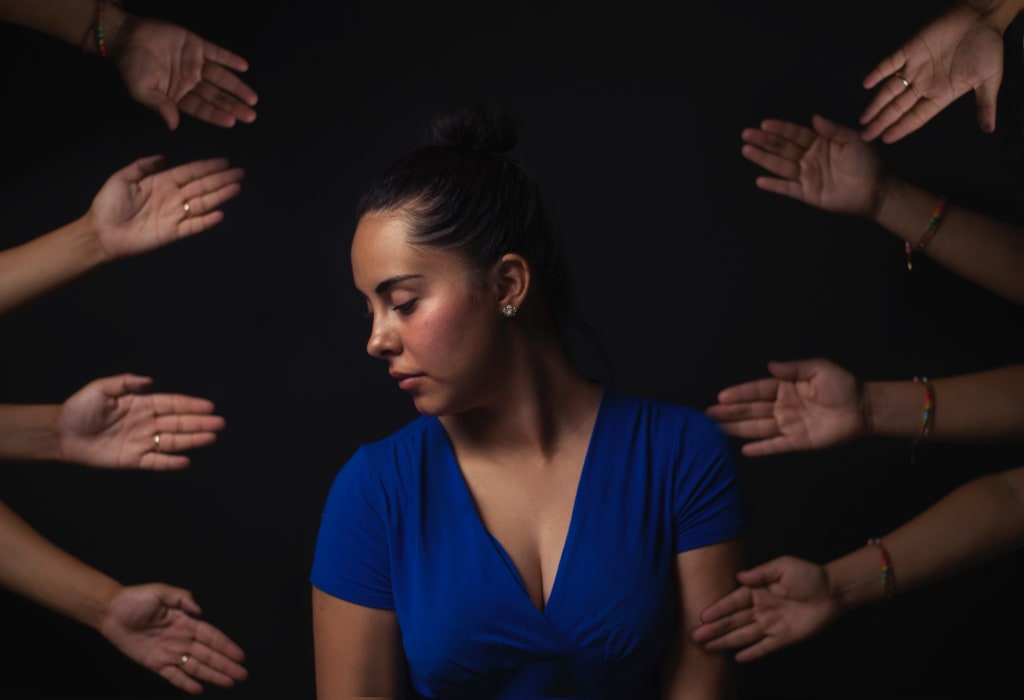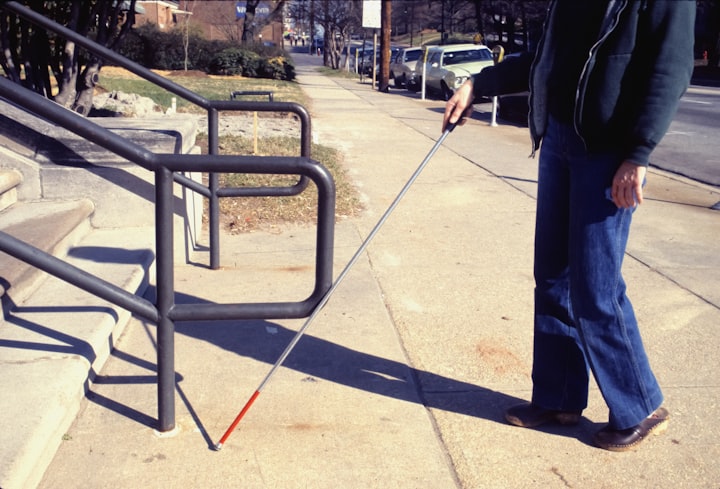If You Truly Want to Help People with Disabilities
Learn some boundaries and the right way to help people.

Have you ever been inspired to help someone with a disability, or support an agency or group advocating for a disability?
Whether you saw someone with a disability out in public, saw some publicity for an agency or event, or you personally know someone—there are some things you need to know about boundaries, and the right way to help people.
Always Get Consent
Before you jump in and help someone with a disability, always get their consent. Simply ask them “do you need help?” If they say yes, then ask how you can help, and comply with their instructions.
Do not get offended or angry if they decline your help. It’s not personal.
Remember that people know themselves, and their capabilities much better than the average onlooker. So, if they’re out in public, remember that they got themselves there in the first place, they can certainly continue to go where they need to without your intrusion.
It actually can be dangerous to assume and “take over” a person with a disability. For example, a blind person walking down the street is concentrating on tracking their whereabouts, and finding landmarks when someone intrudes and tugs them off course, now they’re “really” lost.
Don’t Impede With Their Independence
People with disabilities have a wide variety of tools and methods to use to ensure their independence and freedom in everyday life.
Do not touch or handle any person’s mobility or independence tool—this includes their service animal, wheelchair, or white cane.
These tools are extensions of that person, they depend and trust it, and anytime there’s interference or un-permitted handling—it can be seen as a personal violation.
If someone tells you not to pet their service dog, respect that person, and leave them alone. What if they’re heading towards a set of stairs, and someone’s whistling and calling the dog and distracts them? The dog might miss the cue to stop at the top of the stairs.
It actually can cause injury as it did with this wheelchair user.
Know Your Capabilities
You need to be honest with how much experience you really have before jumping in and offering your help.
Maybe you just joined an agency or group, took a class, or learned about a particular disability, and you see someone with a disability out and about in public, and you want to jump in enthusiastically, because you now “know” what to do.
Please stop yourself, and really check what you’re getting into, and admit your actual experience level first.
For example, you just finished your a Level One American Sign Language (ASL) class, and see a Deaf person at a fast food counter ordering their food by writing and gesturing. You jump in and state “I know ASL!” and fumble through signs and struggle to comprehend and communicate—you’ve just exacerbated the issue. Trust me, they've ordered food before you came along, and will continue to order food long after you.
Compare it to having a medical emergency, you’re hurt badly and someone jumps in and says “I’ve watched every episode of Chicago Hope I know what to do.” Not the same now is it?
So, to be blunt—curb your enthusiasm.
Some Things to Avoid Doing
Time and time again people do things that irk many with disabilities, even after they’re told to stop.
Inspirational Porn—Making videos of people with disabilities and how you’re helping them, or using patronizing comments such as “Look at how I’m helping them,” “Aren’t they inspiring,” “I felt so sorry, so I had to make their life better,” and so on and on. Check out this great TEDtalk by Stella Young.
Disabling instead of Enabling—Taking a person’s independence away instead of enabling them to do things for themselves. Ask how you can help them do things for themselves instead of doing it for them. For example, a blind neighbor needs a few things from the grocery store, offer to drive them there, and guide them around the store instead of taking their list and shopping for them later.
Pigeonholing—When addressing or explaining issues affecting people with disabilities please do not say things like “Deaf people like…” “Wheelchairs users want…” And similar blanket statements. Sure, there are some commonalities, but they are still individuals with their own experiences and personal preferences. Just because your one friend likes it done “this way” doesn't mean that the whole group at large does. There have also been incidents where people with a certain disability are refused service, because another person or group with that same disability caused trouble. For example, some Deaf people could not book a hotel room at a hotel, because some previous Deaf tenants trashed the place.
Assume—Don’t start assuming people with disabilities are not truly disabled. There are too many horror stories across the internet telling stories of people with disabilities being called out, because they can “walk,” but are using handicapped parking spots, blind people looking at smartphones, deaf people listening to music, and so on. Just remember that every disability has a spectrum—mild to severe, good days and bad days, invisible or visible.
Practice some humility and think, “how would it feel if someone did this to me.”
Extra Ways You Can Help
Now that we’ve got the boundaries laid out, let’s look at positive ways you can actually help those with disabilities.
Educate Yourself
Learn all about the disability you’re interested in, and the people who have it. Help get rid of the stereotypes and fear surrounding that disability.
I always say that education is the key to getting rid of ignorance. Read stories on blogs, advocacy and agency websites, watch YouTube videos from people with disabilities themselves, attend a lecture or workshop, and just have fun learning.
Join a Local or National Charity or Agency
Joining a charity that supports research, or helps people gain their independence is another great way to show support.
Start volunteering, raise awareness, meet peers, and make friends.
Give a Donation
Giving a donation, either a one time, annual, or legacy donation will go a long way to help fund research, education, and awareness, and supporting those with disabilities.
Petition the Government
After educating yourself and joining a group, find out what their top priority is, and encourage any action towards that goal.
Joining a petition, either online or in person can help push or repeal local, state, and national level Bills that help people with disabilities through the government. Tell others about it, and the more signatures and interest, the more likely it will gain attention.
Lastly, just remember to stay humble, ask what they need, and do not take away their independence or voice.
About the Creator
Tracy Stine
Freelance Writer. ASL Teacher. Disability Advocate. Deafblind. Snarky.







Comments
There are no comments for this story
Be the first to respond and start the conversation.